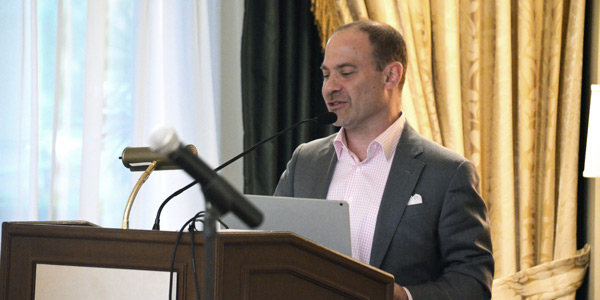By Robert Mullin
Participants in a West-wide forum created by CAISO to discuss issues related to the Energy Imbalance Market (EIM) want to move quickly to complete an evaluation that will shape the group’s future role.
One point of difference has arisen among stakeholders: disagreement over whether the Regional Issues Forum (RIF) should produce its own recommendations on matters affecting the EIM.
RIF members are in “considerable” alignment over what structure and procedures the group should adopt within the EIM’s governance framework, according to a draft issue paper detailing members’ evaluations.
They also agree they can meet a July deadline to present the EIM’s Governing Body with a final proposal outlining the RIF’s procedures and responsibilities.
The RIF was established in 2015 as CAISO began its effort to expand its operations into other parts of the West. The forum was conceived under the EIM charter as an informal body to allow stakeholders and the public to discuss wide-ranging issues related to the West’s only real-time energy market.
Five Sectors
The forum is organized along five industry sectors: independent power producers and power marketers; transmission-owning utilities; publicly owned utilities; consumer advocates; and balancing areas neighboring the EIM. Each sector appoints two liaisons as representatives.
The EIM charter calls for the Governing Body and stakeholders to begin re-evaluating the continued existence of the RIF this month.
During a Feb. 28 joint meeting of the Governing Body and RIF, a consensus emerged that the RIF should be preserved. (See Western Stakeholders Support Continuing Regional Forum.)
But one “existential” question arose, according to Governing Body Vice Chair Doug Howe: What’s the RIF’s purpose?
Stakeholders and their liaisons are still seeking to develop an answer.
The issue paper notes that the RIF’s operating guide “is limited in detail” but “clearly contemplates the possibility of the RIF providing recommendation or written work products on issues.” The guide also allows the group to establish a procedure to express a common position.
“Of all the issues that we got written comments on, the issue that the RIF acting through the liaisons should produce written opinions or recommendations on market design issues was clearly the one in which we got the most disparate comments,” RIF Chair Tony Braun said during an April 7 call to discuss the issue paper.
Powerex opposes the RIF making any formal recommendations, contending that the group’s membership is limited and does not represent the market as a whole. The company wants the RIF to be opened up to a larger number of sectors.
“We think that the current sector definitions are fairly inclusive,” Braun said, speaking on behalf of the liaisons, adding that “if there are additional improvements we need to make in that regard, we certainly would encourage comments.”
Disagreement over RIF Work Products

PacifiCorp, the EIM’s first member, said the RIF should only produce summaries of stakeholder discussions and comments on particular issues, while Portland General Electric thinks that positions should be communicated only by individual stakeholders or “voluntary alignments” of sectors.
Both the California Municipal Utilities Association and Puget Sound Energy recommend maintaining the option of generating written opinions, but only under “detailed” procedures setting out how to produce the papers and capture majority and minority positions. The Natural Resources Defense Council, Public Generating Pool (PGP), Western Resources Advocates and the EIM’s Body of State Regulators (BOSR) largely backed that view.
While the liaisons acknowledged that producing position papers would increase the RIF’s workload and change the character of the group’s meetings, Braun said they wanted to retain the option of producing written work.
“We’ve created … a trigger whereby written work products would be triggered by specific requests,” Braun said. “The requests would come from the EIM governance structure and also would come with a host of procedures that would need to occur.”
Therese Hampton, a liaison from PGP, pointed out that stakeholders generally agreed that the RIF should continue to meet three times a year but reserve the option to convene more frequently if issues warrant — or if requested by the BOSR, the Governing Body or stakeholders. The issue paper suggests that RIF meetings be coordinated with those of the Governing Body, a position with strong stakeholder support.
RIF liaison Matt Lecar, principal at Pacific Gas and Electric, pointed out that the liaisons were proposing a quorum provision requiring at least one liaison from each sector to attend each meeting.
Sara Edmonds, general counsel at PacifiCorp Transmission, said the liaisons have so far discerned “no obvious need” for changes to the EIM’s governing charter or the RIF’s operating guidelines.
“We also note that there would be a need for the ISO’s legal department to take a look at the governance documents following the conclusion of this reevaluation process,” Edmonds said.
Stakeholder comments on the proposals set out in the draft issue paper are due May 3.
“We appreciate all the attention and input that we’ve gotten in the RIF meetings,” Braun said. “And we’d greatly encourage stakeholder comment, because we can’t anticipate all the issues in here.”






